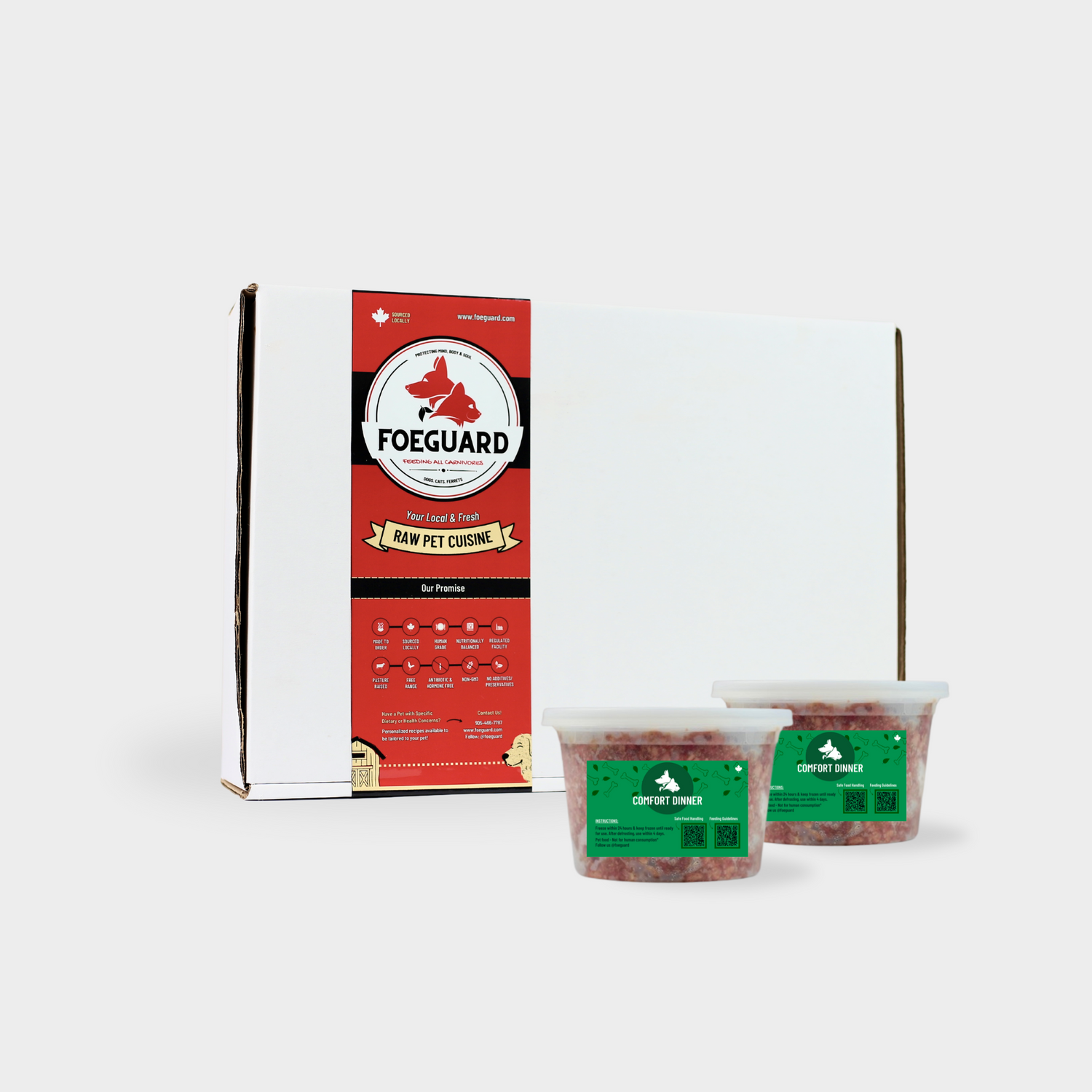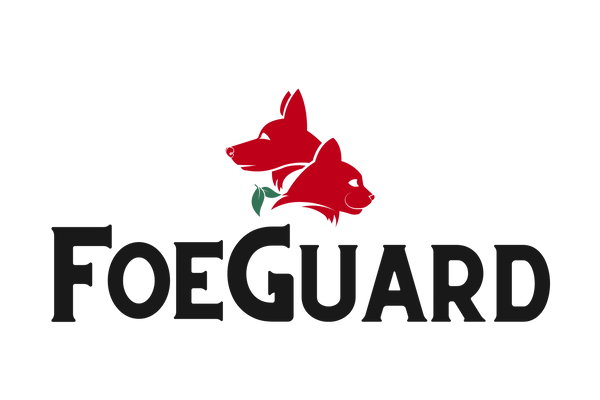Why FoeGuard?
Let's stand against corporate-propaganda and create a voice for those in need.
The rapidly rising number of pets overcome with health issues from disease's, allergies, digestive discomfort, urinary issues and overall low-quality of life has been on the rise ever since the introduction of kibble in 1956. Since then there has been a lot of misinformation surrounding real food nutrition for pets including biased studies, sponsored media content and overall lack of information. We believe pets and their owners are being taken advantage of, we believe that together we can spread better health for pets
Stop feeding your furry carnivores pet foods with unknown ingredients, unreliable quality and unethical sourcing.
For years our own health practitioners have been telling us that we should try to eat as much fresh and locally sourced food as possible, while trying to eliminate as much processed food as we can.
The same logic applies to our beloved pets!
For our FoeGuardians to live a long, healthy and happy life, we need to feed our pets a diet that is also fresh, locally sourced and as close to what nature has intended in a species-appropriate raw food diet.
Help your pet avoid numerous diseases and a lifetime of discomfort, stress and unexpected vet-visits by feeding a FoeGuard farm-fresh raw pet food diet.
From dry, processed kibble diets to low quality raw pet food with animal-grade meat, there are many dangers lurking your pets health and longevity.
We're here to clarify your questions and see how FoeGuard compares to kibble, other raw pet food, and even your homemade diet.
When the convenience and profit-changing extrusion cooking-technology came about which essentially cooked low-quality ingredients (like meat meal, grains, starches) under high heat (212 degrees +) until there were turned to a nutritionally depleted, dry version of what already was below standard animal-grade and by-product meat to maintain shelf-life. This process stripped away what little nutrition remained, producing dry pellets that were packed in fancy packaging with clever copyright became today’s kibble.
Created solely for its low-cost, long life-span and 'convenience', people raved about all the good it does for themselves and the bottom-line but nothing about our fur-family.
Since then, pet diets have focused more on convenience and shelf life than on what our animals truly need to thrive.
Over time, this has been linked to a rise in chronic health issues—from allergies and inflammation to organ disease and even cancer.
Many experts now believe that long-term consumption of these highly processed, species-inappropriate foods plays a major role in these growing health concerns.
Yes, you can scoop and pour out kibble easily, but convenience is subjective. Your dog or cat randomly getting a chronic urinary issue at the age of 4 due to lack of moisture in their diet is not convenient either.
So if kibble is so bad - why is it so popular? Why do so many vets recommend kibble?
Due to the difficulty in finding affordable, transparent raw pet food suppliers many vets disencourage raw food diets because of their inconsistency quality and nutrient balanced, both of which we overcome through human-grade, nutritionist-approved biologically appropriate raw pet food.
More so, vets are not nutritionists and are minimally trained in nutrition, especially when dealing with different breeds, sizes, ages and environments. There education is based on schooling systems that are heavily funded and sponsor many of the programs and studies that are done on these processed foods. This is also why there are so many more studies done on kibble vs raw, as well as why when raw food studies are done they are often misinterpreated, disregarding the basic principles of safe food and handling of raw meat.





